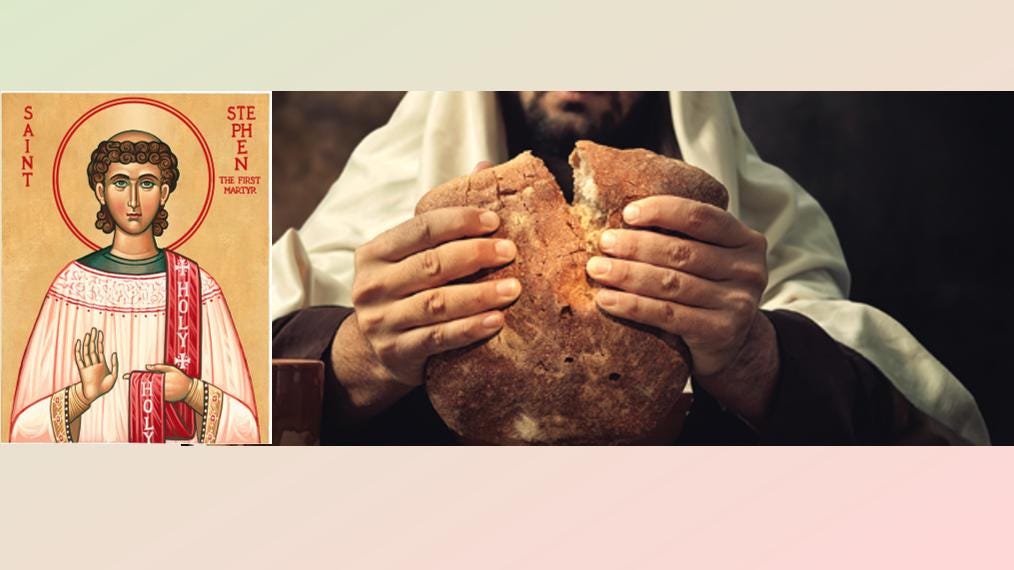Surrendering our lives into the hands of God
April 16, 2024 - Tuesday of the Third Week of Easter
Acts 7:51—8:1a; Ps 31:3cd-4, 6 and 7b and 8a, 17 and 21ab; John 6:30-35
Saint Stephen is described as “a man full of faith and of the Holy Spirit” (Acts 6:5) and “working great wonders and signs among the people” (Acts 6:8). Such a positive description should lead to a happy story. And yet, the reality of life often contradicts our assumptions.
Stephen’s persecution and martyrdom resemble that of Jesus. He was falsely accused and brought before the council and the high priest (Acts 6:13-7:1). What led to his execution was the vision of “the Son of Man standing at the right hand of God” (Acts 7:56). Jesus was accused of blasphemy and sentenced to death when he said, “you will see the Son of Man seated at the right hand of Power and coming on the clouds of heaven” (Matt 26:64). Stephen also commanded his spirit into the hands of the Lord and prayed for his persecutors (Acts 7:59-60). Thus, the first martyr of the nascent Church perfectly identified himself with his Lord. He truly became “another Christ”.
Psalm 31 which accompanies our first reading is a petition in a time of crisis permeated by the trust. It is best read in reference to Jesus Christ and all the martyrs. According to the Gospel of Luke, verse 5, “into your hands, I commit my spirit” were the last words spoken by Jesus before he died (Luke 23:46). The psalmist addresses his prayer to the Lord, and Jesus addresses that prayer to the Father. We find the same prayer on the lips of Saint Stephen but he addresses it to the risen Christ: “Lord Jesus, receive my spirit” (see Acts 7:59).
The words “into your hands I commend my spirit” entered the night prayer of the Divine Office. In Christian tradition, sleep is a metaphor for death. In this way, each night reminds us of our mortality. However, with the dawn of each morning, we invoke the words of Psalm 51, “Lord, open my lips, and my mouth will proclaim your praise” (Ps 51:15), proclaiming a renewal of life. Jesus entered the sleep of death with the words, “Father, into your hands I commit my spirit” (Luke 23:46). But, then on Easter morning, He rose from the grave to live forever. And as Saint Paul explains, “death no longer has dominion over him” (Rom 6:9). This is also our destiny.
In today's Gospel, Jesus explains that He is the bread of life who gives life to the world. For us, Catholic Christians, the phrase “I am the bread of life” evokes the image of the Eucharist. Wheat is harvested from the fields of the earth. Then the seeds are gathered together into one loaf. This one loaf of bread is taken, blessed, broken, and given to us during our Eucharist. This bread becomes the Body of Christ who alone can satisfy our hunger, quench our thirst, and give us life everlasting.




